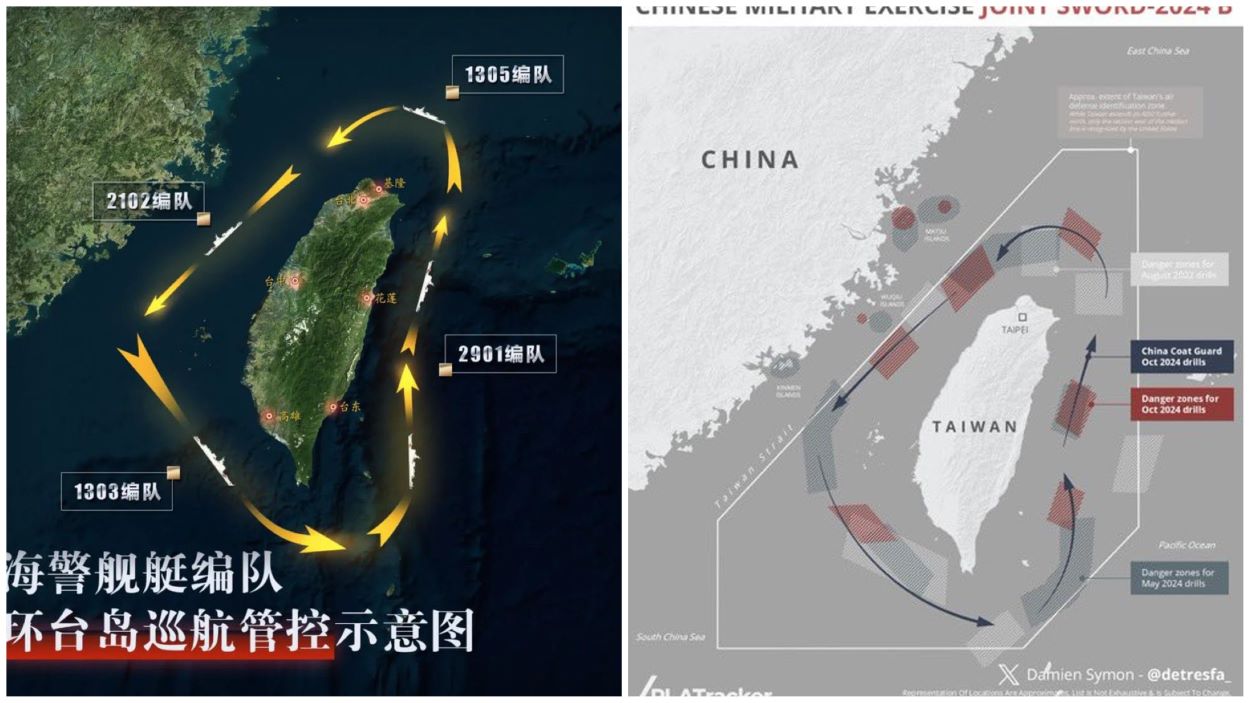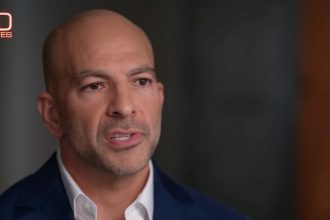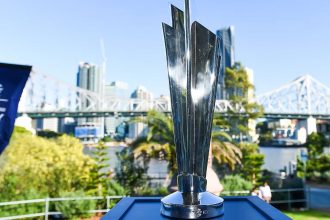China deployed fighter jets and warships to surround Taiwan on Monday, conducting drills aimed at delivering a “stern warning” to what it terms “separatist” forces on the island. Beijing’s stance remains firm on potentially using force to assert control over Taiwan, marking these exercises as the fourth major military manoeuvre in two years.
The United States criticized China’s actions as “unwarranted,” highlighting the risk of escalation and urging Beijing to practice restraint. Taiwanese President Lai Ching-te, who assumed office in May, has adopted a more assertive stance on Taiwan’s sovereignty than his predecessor, Tsai Ing-wen, provoking Beijing’s ire by labelling him a “separatist.”
In response to Monday’s military activities, Lai pledged to “protect democratic Taiwan and safeguard national security.” Concurrently, Taiwan’s defence ministry deployed “appropriate forces.”
Journalists near Taiwan’s Hsinchu air force base observed the launch of 12 fighter jets. The ministry also heightened alert status on outlying islands, readying aircraft and ships to react based on established engagement rules.
Beijing described its military exercises as directly responding to “Taiwan Independence” movements. The drills, named Joint Sword-2024B, aim to test “joint operations capabilities,” stated Captain Li Xi of the Chinese military’s Eastern Theater Command. Conducted to the north, south, and east of Taiwan, these exercises focus on sea-air readiness patrols, blockades, and assaults on maritime and ground targets.
China’s coast guard also participated, conducting “inspections” near Taiwan and patrolling the surrounding waters without entering restricted zones. These actions underscore China’s increased military presence around Taiwan in recent years, with frequent deployments of warplanes and a continuous naval presence.
Taiwan’s defence ministry reiterated the full readiness of its forces in the face of these threats. Amid these tensions, Lai held a high-level security meeting with officials like Joseph Wu, secretary-general of the National Security Council, condemning the exercises as violations of international law.
In a recent speech, Lai affirmed Taiwan’s resistance to annexation and maintained that Beijing and Taipei are not subordinate entities. His Democratic Progressive Party advocates for Taiwan’s sovereignty and democratic governance.
Beijing maintains that its military drills are justified actions necessary for “safeguarding state sovereignty and national unity.” Over a recent 26-hour period, Taiwan detected 25 Chinese aircraft and seven navy vessels near its airspace and waters.
Lieutenant Colonel Fu Zhengnan of the Chinese Academy of Military Sciences emphasized the situation’s severity, noting that these drills could transition from training to combat at any moment.
“If Taiwan separatists provoke once, the PLA’s operation around the island will make their first move,” Fu stated, referring to China’s People’s Liberation Army.
Additionally, Taiwan’s coast guard reported detaining a Chinese individual on one of its outlying islands following a suspected “grey zone intrusion,” a term for tactics that stop short of outright war.
Despite the heightened military activity, daily life in Taipei during rush hour appeared normal. “I won’t panic too much because they quite often have drills,” said 34-year-old engineer Benjamin Hsiao to AFP, expressing a certain desensitization to the frequent military manoeuvres.






